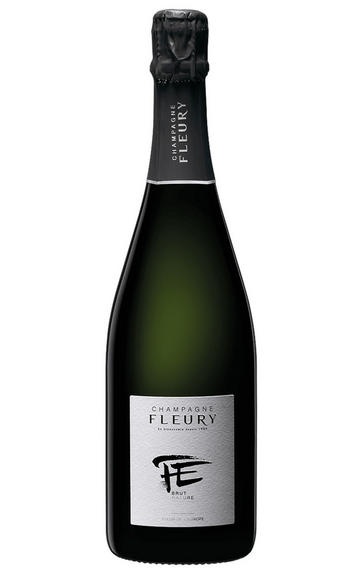
Champagne Fleury, Fleur de l'Europe, Brut
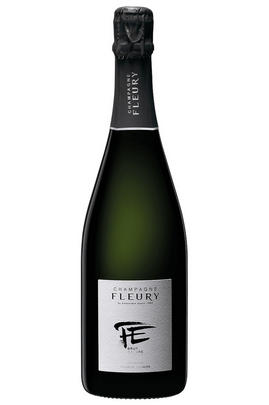
Critics reviews
90% Chardonnay and 10% Pinot Noir; 7 g/l dosage Light yellow. Pungent, deeply pitched aromas of pear skin, melon, honeysuckle and buttered toast, with a hint of seashell adding lift. Sappy, penetrating citrus and orchard fruit flavors are underscored by a salty, minerally quality that adds back-end lift and cut. Fleshy and dry, finishing with firm grip and resonating mineral and floral nuances. I like the interplay of power and finesse here, which makes this Champagne a highly adaptable player with food.
Josh Raynolds, vinous.com (Jan 2015)
Relatively mature nose which marries herbs, currants and hints of crème brûlée, tempered by a creamy and languid palate kept neatly in check with a sobering tight structure; offering plenty of pleasure.
Simon Field MW, Decanter.com (Mar 2017)
About this WINE
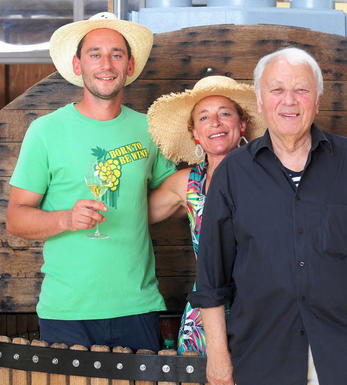
Champagne Fleury
Champagne Fleury has been in the business of winemaking for over 125 years and is respected as one of the region’s first pioneers of biodynamics. Despite its long history, Fleury has remained a family winery. It is located in the far south of Champagne, in the Côtes des Bar, where the terroir has a huge amount in common with the Grand Crus of Chablis.
Fleury has never stopped innovating. In 1989, they committed fully to organic and biodynamic practices, the first in the region to do so. The winery prides itself on personifying the “art of being natural”. In this spirit, Champagne Fleury isn’t afraid to go against the grain in the interest of coaxing the very best out of the terroir.
Perhaps due to this, Fleury cuvées have a distinctive vinous quality and display outstanding precision, thanks to the care taken by the team in growing them. The mature Champagnes are a conversation piece at any gathering, managing to balance an ethereal purity of fruit with an earthy sense of place.
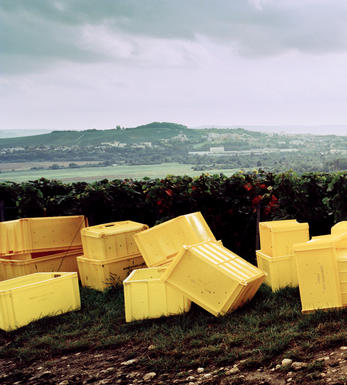
Brut Champagne
Brut denotes a dry style of Champagne (less than 15 grams per litre). Most Champagne is non-vintage, produced from a blend from different years. The non-vintage blend is always based predominately on wines made from the current harvest, enriched with aged wines (their proportion and age varies by brand) from earlier harvests, which impart an additional level of complexity to the end wine. Champagnes from a single vintage are labelled with the year reference and with the description Millésimé.
Non-vintage Champagnes can improve with short-term ageing (typically two to three years), while vintages can develop over much longer periods (five to 30 years). The most exquisite and often top-priced expression of a house’s style is referred to as Prestige Cuvée. Famous examples include Louis Roederer's Cristal, Moët & Chandon's Dom Pérignon, and Pol Roger's Cuvée Sir Winston Churchill.
Recommended Producers : Krug, Billecart Salmon, Pol Roger, Bollinger, Salon, Gosset, Pierre Péters, Ruinart
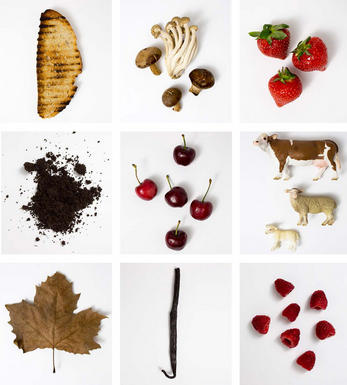
Pinot Noir
Pinot Noir is probably the most frustrating, and at times infuriating, wine grape in the world. However when it is successful, it can produce some of the most sublime wines known to man. This thin-skinned grape which grows in small, tight bunches performs well on well-drained, deepish limestone based subsoils as are found on Burgundy's Côte d'Or.
Pinot Noir is more susceptible than other varieties to over cropping - concentration and varietal character disappear rapidly if yields are excessive and yields as little as 25hl/ha are the norm for some climats of the Côte d`Or.
Because of the thinness of the skins, Pinot Noir wines are lighter in colour, body and tannins. However the best wines have grip, complexity and an intensity of fruit seldom found in wine from other grapes. Young Pinot Noir can smell almost sweet, redolent with freshly crushed raspberries, cherries and redcurrants. When mature, the best wines develop a sensuous, silky mouth feel with the fruit flavours deepening and gamey "sous-bois" nuances emerging.
The best examples are still found in Burgundy, although Pinot Noir`s key role in Champagne should not be forgotten. It is grown throughout the world with notable success in the Carneros and Russian River Valley districts of California, and the Martinborough and Central Otago regions of New Zealand.


Buying options
Add to wishlist
Description
The original and some would suggest the best of the biodynamic Champagnes, Fleury is based in the less than entirely fashionable Côte des Bars and excels in the production of Pinot Noir. They have been biodynamic for so long (1989) that the vines have now gained maturity under the natural inclinations of this rigorous regime. A beguiling paradox of ethereal purity and an earthy sense of place marks out these wines and underlines their position as one of the very best producers in the south of the region.
The nose is reminiscent of honey and acacia while the palate is full and generous with plenty of aromatic freshness – a wonderful apéritif or a perfect accompaniment for seafood.
wine at a glance
Delivery and quality guarantee